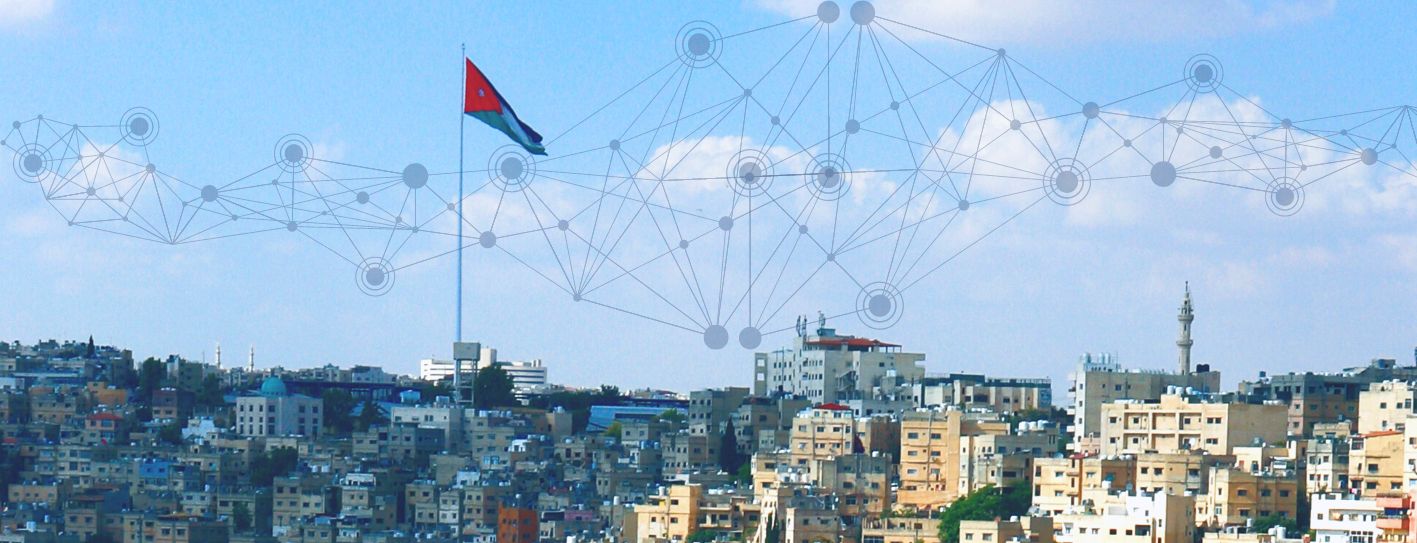
- 23 Feb 2023
Over the past five years, Leaders International has implemented multiple development interventions across Jordan.
These initiatives typically focus on innovation, entrepreneurship and employability. Whenever possible, we promote public-private partnerships that lead to positive, tangible results.
At the end of 2022, three of our Jordanian projects came to an end. Each, however, has the potential to continue under its own steam well into the future, with measurable, long-term impact on multiple fronts – including civic engagement, economic value and inclusivity.
Here’s a summary of the last three projects and the ways in which they have made a difference.
Giving Jordan's young entrepreneurs a voice
With the financial support of MEPI, the government of Jordan worked with Leaders International on a two-pronged initiative that engages Jordanian youth and spurs their entrepreneurial mindsets.
First, young Jordanians took part in a series of brainstorming sessions with three participating ministries via an online crowdsolving platform named Idea Bank.
The Ministry of Agriculture, the Jordan Investment Commission, and the Ministry of Digital Economy and Entrepreneurship (MODEE) shared six domestic challenges on the platform so that entrepreneurs could submit their innovative ideas there.
One of the challenges, for example, asked participants to consider how awareness of government support for farmers (such as education, training and development support) could reach a wider audience.
While assistance of this kind can be vital when there is a defect in a farmer’s crop production, the Ministry of Agriculture reported a lack of demand.
The six challenges invited open discussion on issues like this, as well as other economic, environmental and social challenges in Jordan – and sought to find solutions.
A second pillar saw Leaders International work with the government and 99 young entrepreneurs (of which 42% were female) on a three-day hackathon.
The hackathon culminated in a startup pitch competition which generated new business solutions for the pre-identified domestic challenges. The three winning startups were then funded and accelerated for six months.
To date, these startups have delivered one MVP, two investment pitches and three financial projections. The project’s platform has now been handed over to the Ministry of Digital Economy and Entrepreneurship (MODEE) so that this ‘citizen entrepreneurship’ endeavour can continue.
Upskilling refugees to improve livelihoods
Refugees face many difficulties when trying to find employment. Training schemes, while well-intentioned, will fall flat if refugees acquire skills for which there is little local demand.
Recognising this, Leaders International delivered a sustainable intervention called Skills4Work, which was aimed at refugees who had settled in Jordan. Funding came from the EU Regional Development and Protection Programme (RDPP) for refugees and host communities in Jordan, Lebanon and Iraq.
Importantly, the starting point was the needs of local SMEs in the regions where refugees had settled. What skills did they need that would enable them to increase their capabilities?
This dialogue led to a project that combined skills training, job placements and apprenticeships to ensure safe and sustainable livelihood opportunities for both refugees and host communities.
At the same time, 40 local SMEs from different sectors benefited by increasing their business, marketing and production capacities. Subsequently, they also improved their labour absorption capacity and willingness to create new jobs and new job positions.
More than 285 Jordanians and refugees were supported by the project, and 63 participants were offered full-time employment by the SMEs that had participated.
Qusai Ghanem, who trained as an apprentice at the Mashreq and Maghreb factory in Jordan, is one of the many success stories from this project. As well as proving himself to be adept at installing wires in electrical appliances, he went on to make friends with the existing workforce.
“As a person with disabilities,” said Omar Dabbah, Deputy General Manager at the factory, “Qusai is a success story because he was able to prove to himself, to us and to everyone that this group is not a burden, but rather a productive, valuable and active part of society.”
Helping young techies to access global markets
The Digital Avenue project reached out to creative and innovative youth who wanted to become digital freelancers. Its goal was to equip them with the knowledge they needed to run a small business.
Assisted by funding from the US Department of State in Jordan, Leaders International delivered its support through an online platform on which young digital entrepreneurs could receive accelerated training via an online academy.
Alongside this, we added a global digital jobs board to the website. New freelancers could also use the site to promote their services to an international audience of clients, especially in the US. Many went on to find work via UpWork.com and Freelancer.com, too.
In total, 865 young Jordanians were upskilled to run a digital freelance business – 53% of them being women. Ten new freelance agencies were created and went on to secure 85 contracts worth more than $120k.
The Digital Avenue website is now well established and continues to be an important springboard for freelancers looking to find work overseas. Among them is Mohammad Hamdan, a 33-year-old graduate of the World Islamic Sciences and Education University, whose small team of digiworkers were able to transform the way they submitted proposals after they upskilled using the Digital Avenue platform. Mohammad has also worked with a number of mentors to reach new clients in the US.